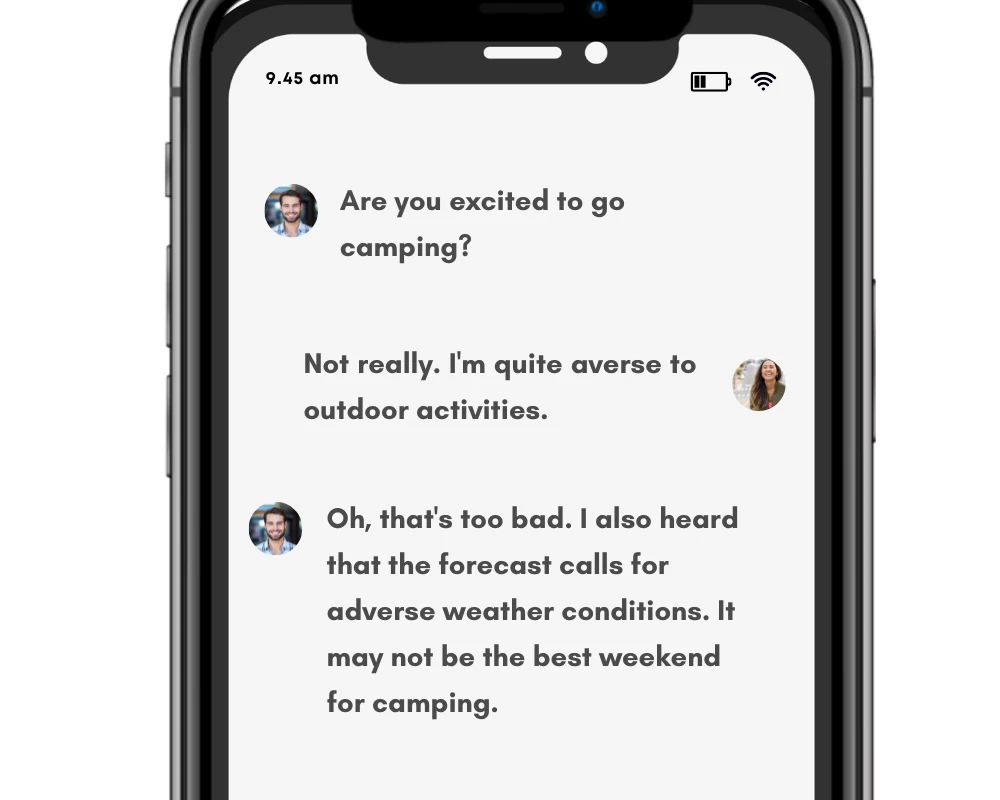
Adverse vs. Averse
The government was averse to imposing new taxes on the public.
The struggling business faced adverse economic conditions.
The patient experienced averse side effects from the new drug.
She was adverse to seafood due to a past allergic reaction.
What’s the difference between averse vs. adverse? These adjectives are frequently confused, and it’s easy to see why: they’re a single letter apart and have similar meanings.
Still, they are not the same and should be used correctly in writing. Allow this post to be a guide on the differences and proper usages of adverse and averse, (to avoid the common confusion).
Are “averse” and “adverse” interchangeable?
| Examples with “adverse” | Examples with “averse” |
| The decision to quit her job had an adverse impact on her financial stability. | She was averse to taking risks and preferred her well-established routine. |
Adverse and averse are both adjectives that generally describe feelings of opposition, though they are not interchangeable:
- Averse describes “having an active feeling of repugnance, dislike, or distaste—usually used with to: He seems averse to strenuous exercise“.
- Adverse describes “acting against or in a contrary direction: They were hindered by adverse winds“. Also, something contrary to one’s interests can be adverse: an adverse verdict.
When to use adverse or averse
The proper use of averse and adverse concerns what they describe. Averse usually depicts a negative feeling or emotional response to something. The noun form of averse is aversion, which likewise concerns personal or negative feelings towards or about something.
Adverse applies more to actions, effects, conditions, or events. Its associated noun forms are adversity and adversary. When you want to describe a negative or deleterious effect that something has (e.g., a certain medication or climate change), the appropriate word in these contexts is adverse.
“Adverse”, used in sentences
| Examples: “adverse’ used in sentences |
| The company’s profits suffered due to the adverse economic conditions in the region.
The medication had some adverse side effects, including nausea and dizziness. The team faced adverse weather conditions during their expedition, making the climb even more challenging. Her decision to quit her stable job had an adverse impact on her financial stability. The project was delayed due to a series of adverse events, such as equipment failures and unexpected setbacks. |
“Averse”, used in sentences
| Examples: “averse’ used in sentences |
| She was averse to taking risks and preferred to stick to her well-established routine.
Despite his love for adventure, he was averse to the idea of bungee jumping from a high platform. The manager was averse to implementing the new software because he believed it would disrupt the team’s workflow. The child was averse to eating vegetables and would always find ways to avoid them at mealtime. She was averse to public speaking and would get extremely anxious before presentations. |
Associate ‘adverse’ (with ‘d’) with ‘difficult’ or ‘detrimental’ external conditions, while ‘averse’ is for personal dislike or opposition.
Synonyms of adverse
- conflicting
- detrimental
- disadvantageous
- inimical
- injurious
- negative
- unfortunate
- unfriendly
- contrary
- opposed
- inopportune
- unpropitious
Synonyms of averse
- reluctant
- disinclined
- hesitant
- hostile
- disliking
- antagonistic
- allergic
- loath
- contrary
- ill-disposed
Origin of adverse
Late 14c., “contrary, opposing,” from Old French advers, earlier avers (13c., Modern French adverse) “antagonistic, unfriendly, contrary, foreign”… from Latin adversus “turned against, turned toward, fronting, facing”.
Origin of averse
Mid-15c., “turned away in mind or feeling, disliking, unwilling,” from Old French avers “hostile, antagonistic” and directly from Latin aversus “turned away, turned back”.
Check out other commonly confused words
Sources
- Harper, Douglas. “Etymology of adverse.” Online Etymology Dictionary, https://www.etymonline.com/word/adverse. Accessed 18 August 2023.
- Harper, Douglas. “Etymology of averse.” Online Etymology Dictionary, https://www.etymonline.com/word/averse. Accessed 18 August 2023.
- “Averse.” Merriam-Webster.com Dictionary, Merriam-Webster. Accessed 18 Aug. 2023.
- “Adverse.” Merriam-Webster.com Dictionary, Merriam-Webster. Accessed 18 Aug. 2023.
Work Sheet
Which word is primarily used to describe a personal feeling of dislike or opposition?
Which word is used to describe unfavorable conditions, negative effects, or something contrary to one’s interests?
According to the post, which word is incorrectly used in the sentence: “The patient experienced averse side effects from the new drug.”?
Which word is incorrectly used in the sentence: “She was adverse to seafood due to a past allergic reaction.”?
The noun form “aversion” is associated with which adjective?
The company’s profits suffered due to the economic conditions in the region.
The government was to imposing new taxes on the public.
The medication had some side effects, including nausea and dizziness.
She was to taking risks and preferred her well-established routine.
Her decision to quit her stable job had an impact on her financial stability.
Frequently Asked Questions
What’s the diff: averse vs. adverse?
+
Are averse and adverse interchangeable?
+
When should I use averse?
+
When should I use adverse?
+
What kind of things are adverse?
+
Yash, D. "When to Use Averse vs. Adverse (The Difference, Examples)." Grammarflex, Jun 6, 2025, https://www.grammarflex.com/when-to-use-averse-vs-adverse-the-difference-examples/.











